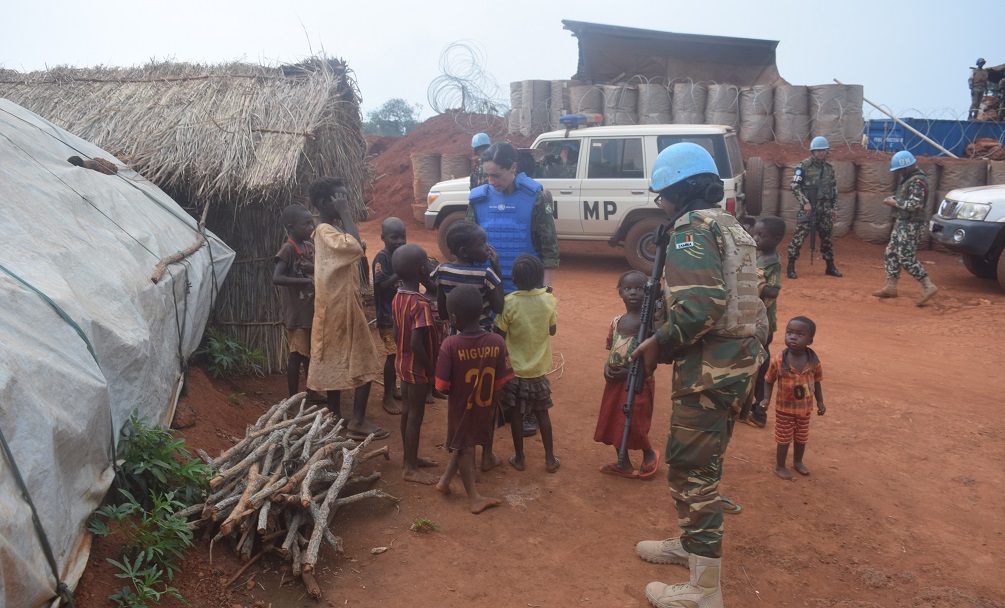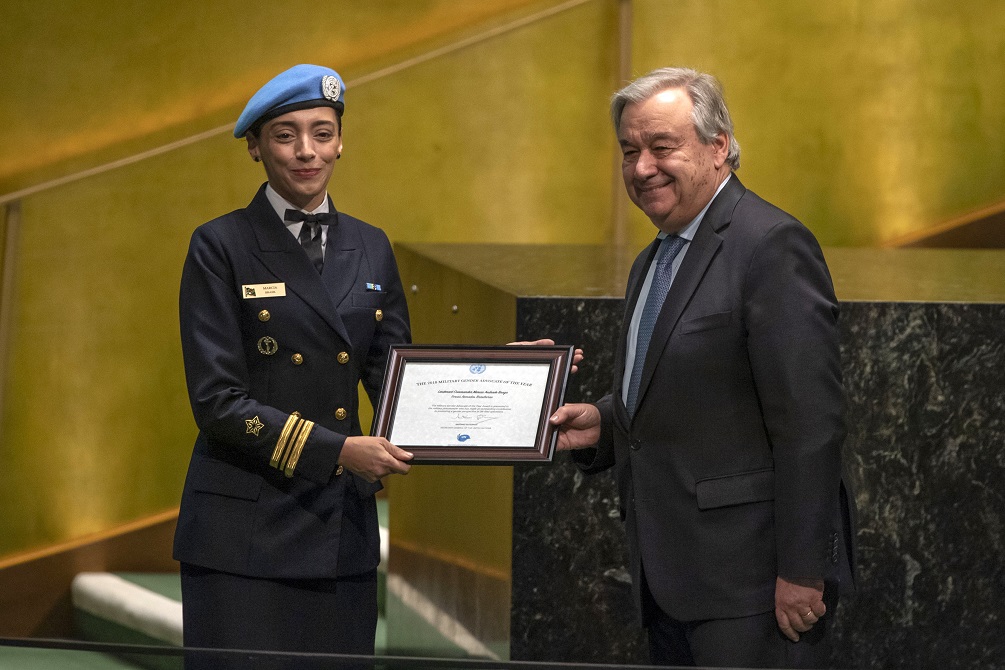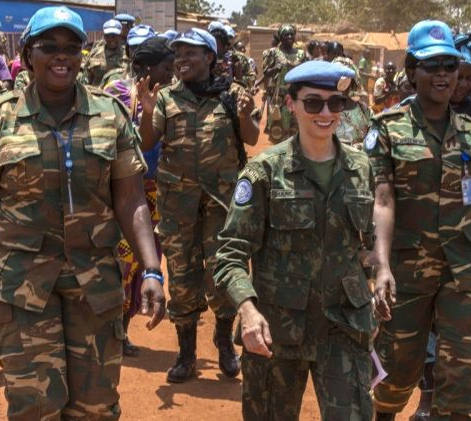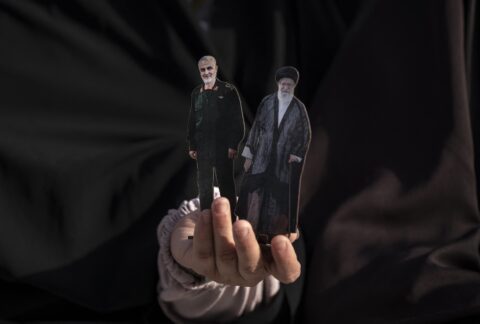In early July 2019, the officer was assigned to the Almirante Sylvio de Camargo Training Center, in Rio de Janeiro, and will be working at the Naval Peacekeeping Operations School, which trains MB service members for UN peacekeeping operations or MB international commitments.
UN Secretary-General António Guterres presented Lt. Cmdr. Márcia with the award on March 29, 2019, for serving as military gender advisor in the United Nations Multidimensional Integrated Stabilization Mission in the Central African Republic (MINUSCA, in French). The officer visited the Central African Republic (CAR) from April 2018 to April 2019.
In an interview with Diálogo, Lt. Cmdr. Márcia attributed the award to her dedication to the work carried out in MINUSCA. “It was a personal battle. I had never dedicated myself to anything as much as I did to protecting the civilians,” she said. “There was no better way to close the cycle of my mission in CAR. It’s very good to be recognized, and to have it done on an international level is beyond my wildest dreams.”

The officer also received the Victory Medal from the Brazilian Ministry of Defense, on April 5, 2019, which President Jair Bolsonaro presented. “This shows that, like the UN, Brazil recognizes the importance of gender equality and the protection of civilians,” she said.
The goal of her mission was to apply gender perspectives within the military component, to avoid human rights violations. Until then, no such work had been performed in MINUSCA. “I created an action plan from scratch, from staffing to the engagement of locals.”
According to Lt. Cmdr. Márcia, five steps were defined in the line of action: development of the workforce; service member training, which included visiting sectors and battalions to explain the importance of using the gender perspective on a day-to-day basis; information exchanges; inclusion of gender perspective in documents and guidelines produced in the mission; and engagement and deployment within communities. “It was a full cycle. It was gratifying to see the mixed teams of men and women working to protect the local population,” she said.

A main part of the work Lt. Cmdr. Márcia developed was to assess and understand the region’s more sensitive areas and the locations of groups. The goal was to document characteristics of the terrain to be able to advise military commanders on the best troop positioning.
“The gender advisor must be on the ground, with the locals and the contingent, not working from an office,” she said. “If I know about armed groups recruiting children in an area, I need to pay more attention to the kids’ routine, to understand how abuses occur and alert the troops to the need for intervention.”
The activities were carried out closer to the local community and projects were developed to mitigate threats. “I believe that whenever service members are on the ground, we can avoid abuses. The patrol, preferably comprised of men and women, the engagement, and listening to the community are fundamental for the protection of civilians.”
The small number of women working on MINUSCA was among the main challenges Lt. Cmdr. Márcia faced. “I had 3.7 percent women. The average for missions was 4 percent, including military observers, team, and troop workers. [It’s a] very small amount, when considering the importance of mixed patrols to get closer to women, especially those who have been victims of sexual violence,” she said. “Language was another obstacle to approaching the community. There were battalions that did not speak French, which is predominant in the region.”
Despite the challenges, Lt. Cmdr. Márcia said the experience in a UN mission is unforgettable. “At each obstacle, I increased my strength to continue working toward helping people. I was the happiest I had ever been. I miss Africa. It’s part of me now, part of my history,” she concluded.









